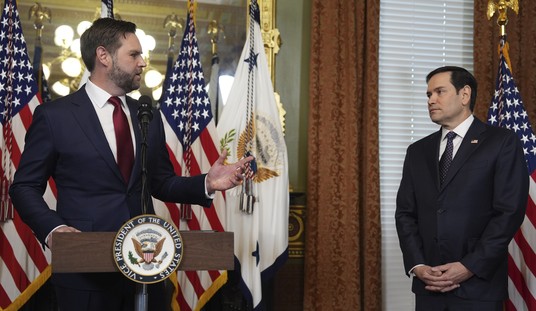Remember those? We’ve finally got an answer — sort of. Confirmed: Intel obtained from detainee interrogations helped stop terror attacks. Unconfirmed: Whether any enhanced techniques were used in the interrogations that yielded that intel. Result: Inconclusive.
We need to see the unredacted memos. How about it, Barry?
The Department of Justice is compiling a list of documents, to release later this evening, related to a 2004 CIA Inspector General report on enhanced interrogation techniques that was released today. The two documents that Cheney requested will be part of that release, but were made public early by the CIA.
One of the CIA documents, entitled “Detainee Reporting Pivotal for the War Against al-Qaeda,” and written June 3, 2005, says “detainee reporting has become a crucial pillar of U.S. counterterrorism efforts, aiding intelligence and law enforcement operations to capture additional terrorists, helping to thwart terrorist plots, and advancing our analysis of the al-Qaeda target.”
The report is heavily redacted and, at times, it is unclear which detainees are being discussed. At no point does the report describe intelligence gained as result of enhanced interrogation techniques.
The report says intelligence from detainees has resulted in the thwarting of terror plans.
Carl Levin did warn us in May that the documents say nothing about enhanced interrogation, only interrogation generally. But according to Republican members, the House Intelligence Committee was told at a closed briefing as recently as June that EI did in fact yield valuable intel, a leak that drew criticism — but not contradiction — from Democrats on the committee. The GOP’s also sending around a memo tonight quoting other intel documents released by the inspector general today that claim EI was successful. You can read the whole thing at the Standard but here’s a money bit:
• After the use of the enhanced interrogation techniques on the bomber of the USS Cole, “al-Nashiri provided lead information on other terrorists during his first day of interrogation.” pages 35-36, para 76…
• “Results from the first al Qaeda HVT interrogated using the aforementioned enhanced techniques, Abu Zubayda, have been outstanding. . . . This has ultimately led to some instances of the US Government being able to neutralize Al Qaeda capabilities worldwide before there was an opportunity for those capabilities to engage in operations harmful to the United States.” CIA Business Plan discussing RDI program, page 13, March 7, 2003.
Exit question: What’s Cheney’s next move?
Update: Exit question asked, exit question answered. Do the memos prove as much as he’s suggesting here, though? “Clearly demonstrate”? The “bulk” of intelligence?
The documents released Monday clearly demonstrate that the individuals subjected to Enhanced Interrogation Techniques provided the bulk of intelligence we gained about al Qaeda. This intelligence saved lives and prevented terrorist attacks. These detainees also, according to the documents, played a role in nearly every capture of al Qaeda members and associates since 2002. The activities of the CIA in carrying out the policies of the Bush Administration were directly responsible for defeating all efforts by al Qaeda to launch further mass casualty attacks against the United States. The people involved deserve our gratitude. They do not deserve to be the targets of political investigations or prosecutions. President Obama’s decision to allow the Justice Department to investigate and possibly prosecute CIA personnel, and his decision to remove authority for interrogation from the CIA to the White House, serves as a reminder, if any were needed, of why so many Americans have doubts about this Administration’s ability to be responsible for our nation’s security.








Join the conversation as a VIP Member